31 May 2022
ICLEI Africa at Africities 9 | Covering mobility, food, community, climate and finance
Engaging sessions, meaningful interactions and inspiring conversations. Our team, our organisation and our initiatives had a strong presence in all corners of the summit.

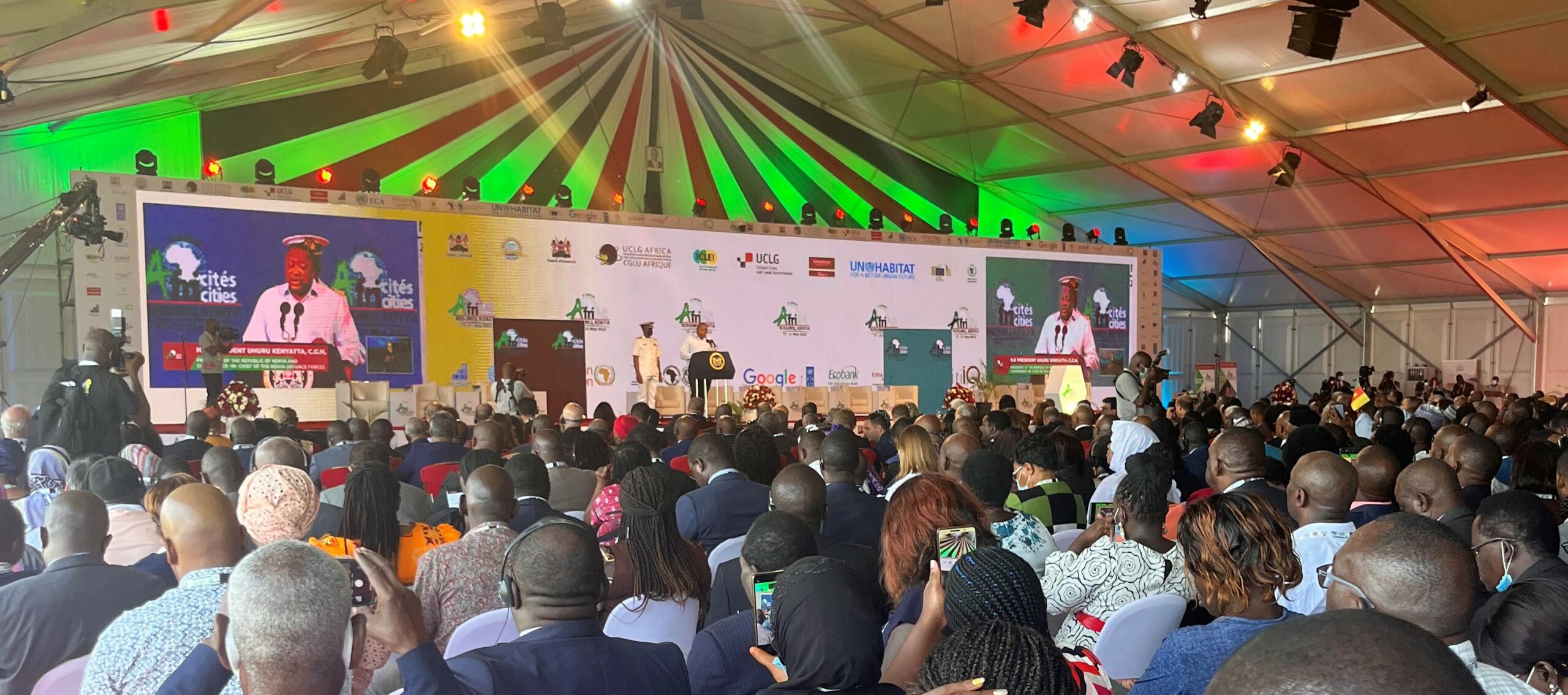

Africities 9 marked the first time in two years where a large number of cities and local governments from across Africa had the opportunity to meet in person and engage in the conversations that matter; the conversations that drive real change. Thousands of city officials and technical staff travelled to Kisumu in Kenya for this event, which marked the first time Africities was hosted by an intermediary city. The role of these small and medium sized cities was highlighted strongly throughout the event.
Here is an overview of ICLEI Africa’s presence throughout the congress – whether it be in organising, facilitating or speaking at sessions, or engaging old and new partners and members at our stand at the exhibition area.
Feeding intermediary cities – promoting sustainable urban food systems in intermediary cities
FAO, UCLG, UN-HABITAT, UNEP, RIKOLTO, ICLEI AFRICA, ENDA, ECOPOP, RUAF and CGIAR
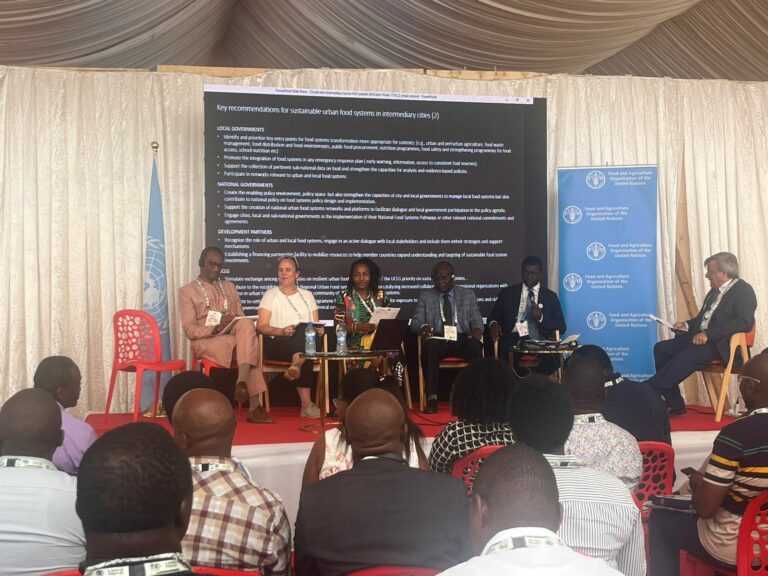
“The price of food is affected by transaction cost. The more you produce food closer to the consumers, the lower the cost of food. That is why urban and peri-urban agriculture is important to shorten food miles.”
Governor Kiyongo Karanja
Kiyabu County Governor
“If food systems in African cities are put on a sustainable path, this will have a positive effect on the sustainability agenda of cities.”
Carla Mucavi
FAO Representative to Kenya
“Governing food systems means governing both food and its intersections with other systems.”
Gareth Haysom
Researcher at African Centre for Cities
Feeding intermediary cities – promoting sustainable urban food systems in intermediary cities
FAO, UCLG, UN-HABITAT, UNEP, RIKOLTO, ICLEI AFRICA, ENDA, ECOPOP, RUAF and CGIAR
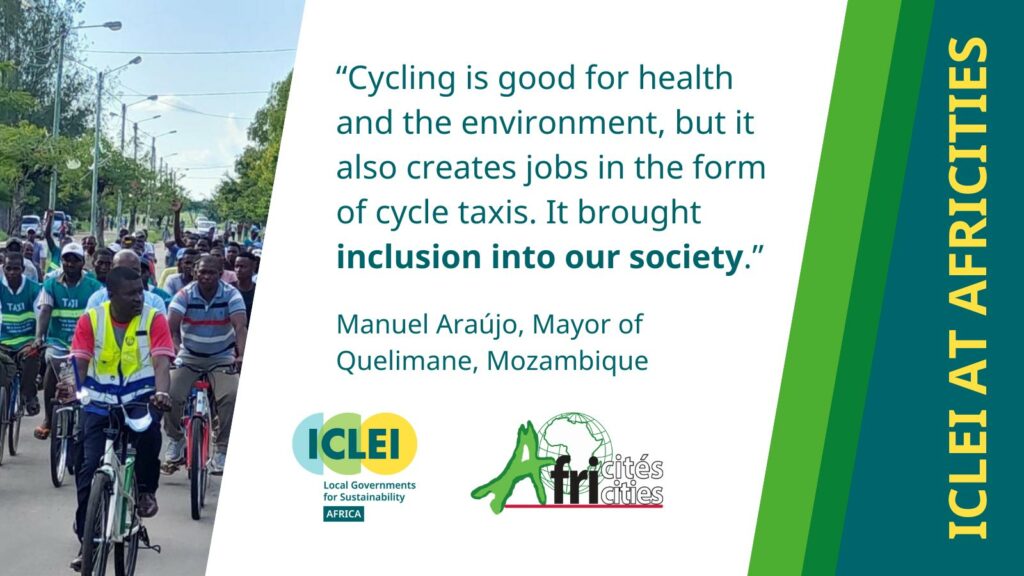
For any mobility transition, we must think of the energy transition. They go hand in hand ~ Jehan Bhikoo, Senior Professional Officer, ICLEI Africa
“In terms of the energy sources for mobility, we need not put our eggs in one basket, but diversify. We must look at the whole system.” ~ Uthman Shitta-Bey, Deputy Director, LAMATA, Lagos State
“For Lagos State, we cannot effectively transition to e-mobility without looking at the issue of electricity, because how do you build an e-mobility scheme when the electricity infrastructure is in chaos?” ~ Uthman Shitta-Bey, Deputy Director, LAMATA, Lagos State
Feeding intermediary cities – promoting sustainable urban food systems in intermediary cities
FAO, UCLG, UN-HABITAT, UNEP, RIKOLTO, ICLEI AFRICA, ENDA, ECOPOP, RUAF and CGIAR
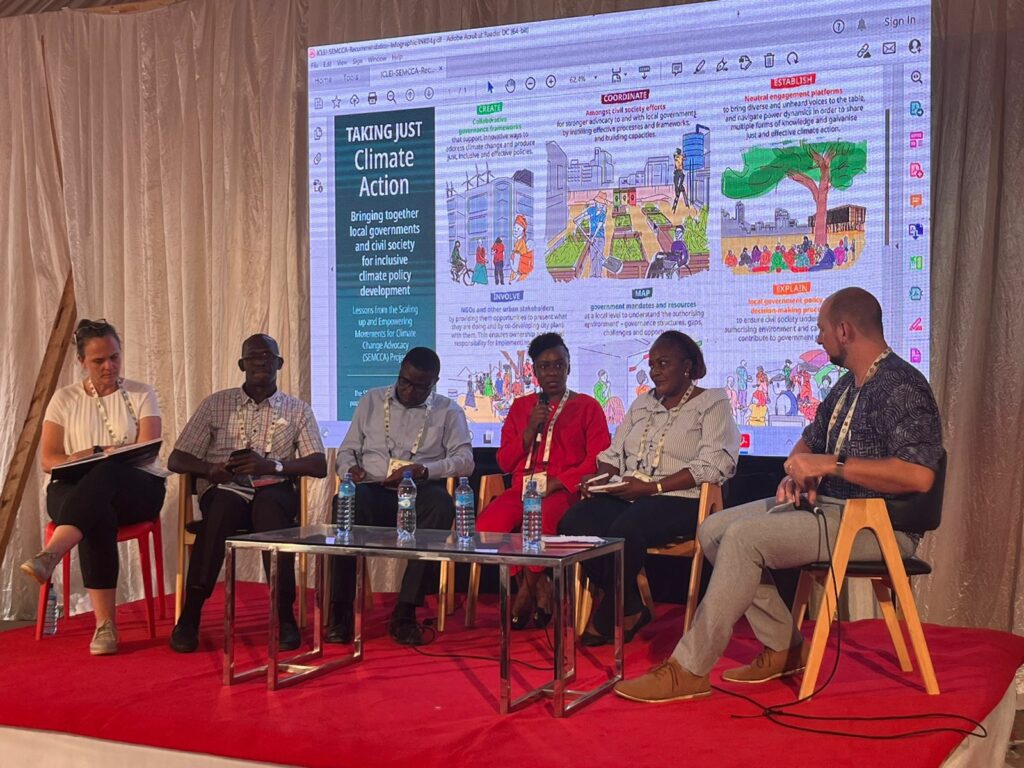
African young leaders: Drivers for a sustainable future for intermediary cities
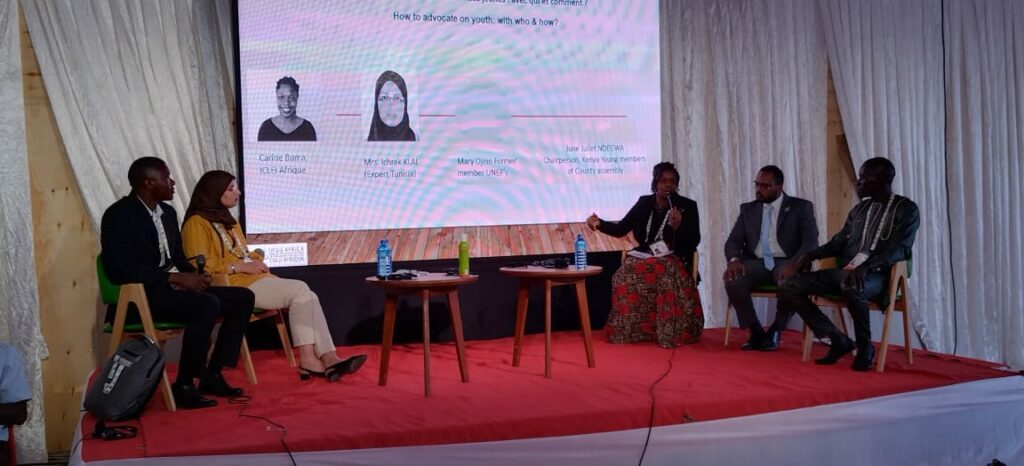
Making Cities Resilient 2030: Leveraging partnerships for resilience building
ICLEI Africa and UNDRR
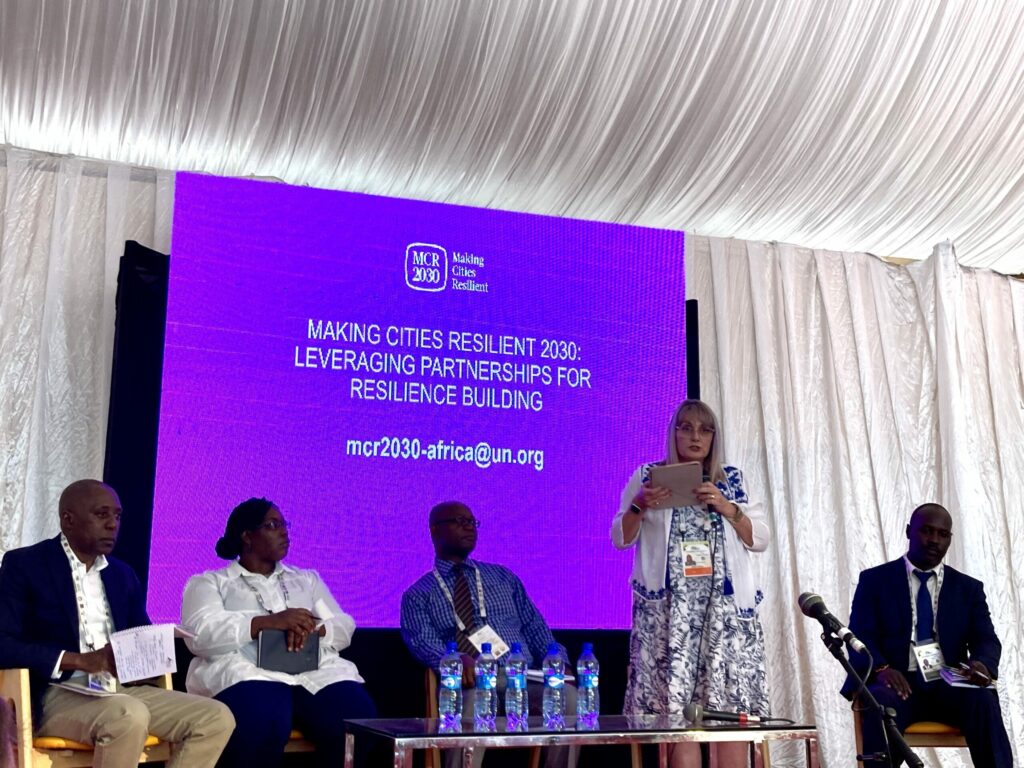
Mayoral roundtable in main plenary hall
ICLEI Africa’s Dr. Meggan Spires facilitated a session in the main auditorium with representatives from C40, CEMR, Chefchaouen and more. The main messages discussed:
- We need inclusive climate action
- Adaptation is key for #COP27
- The private sector has to be involved
- We have to mobilise the youth
- We need peer-to-peer learning and networks to achieve our #sustainability sustainability goals
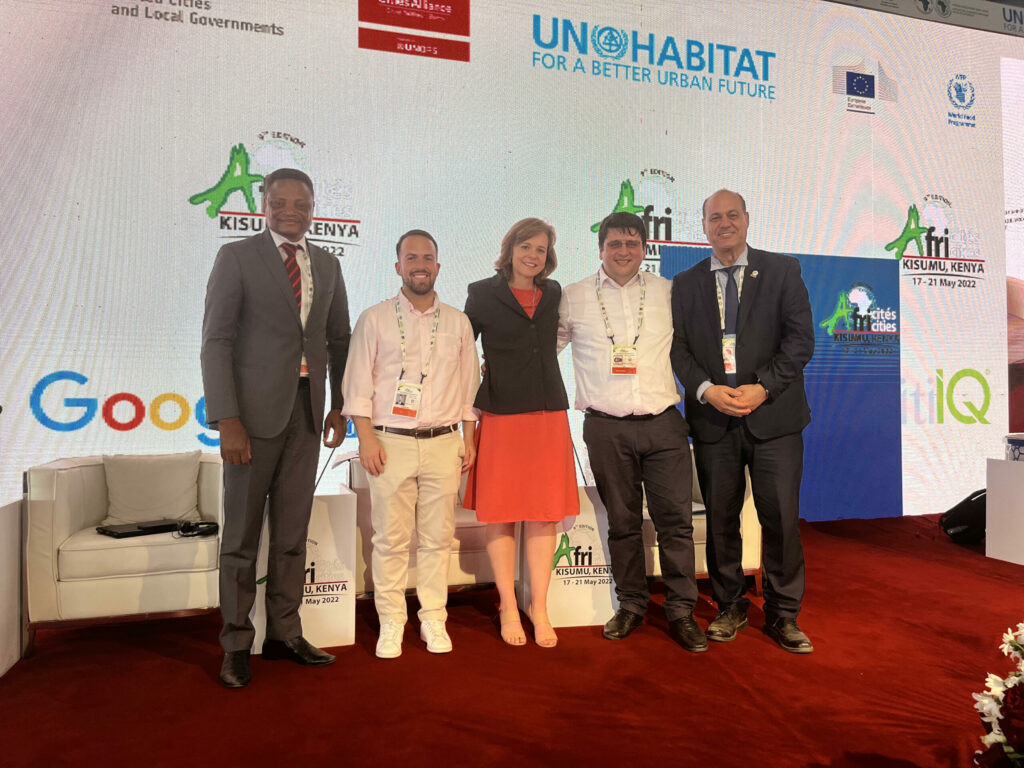
In pictures: Meetings, members and commitments
The ICLEI Africa stand was alive with activity throughout the week. It was a place for engaging conversation, networking, sharing ideas, renewing memberships and signing up, not only to become ICLEI members, but also CitiesWithNature and RegionsWithNature. Our bustling stand lead to a number of other off-site meetings and engagements.
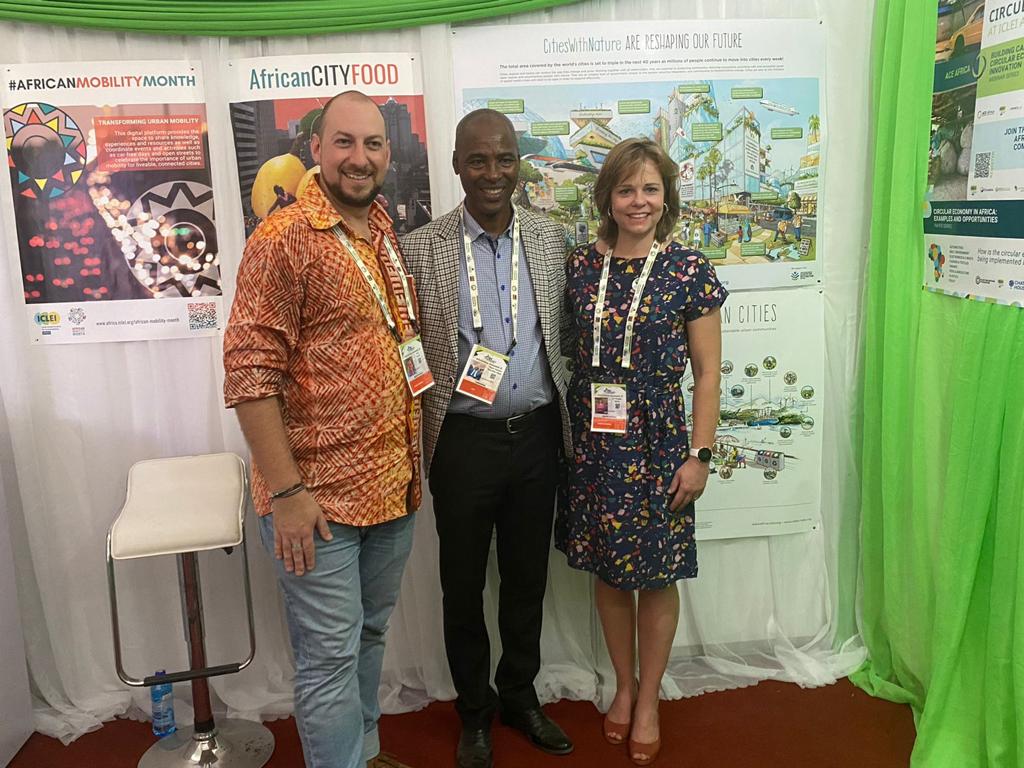
Africities 9 Declaration
- We wish to make intermediary cities structuring poles of sustainable development in Africa by granting them a prominent place in spatial planning, and creating new territorial dynamics that promote exchanges and linkages between the rural and urban environments.
- We affirm our willingness to establish a constructive political dialogue between the different spheres of government in order to abide by the principle of subsidiarity, an essential factor in the effectiveness of public policies.
- We undertake to give priority to urban planning as an instrument for controlling the growth of urban & peri-urban areas by putting in place the institutional, legal, regulatory and operational instruments as well as the conditions for a participatory dialogue with the people.
- We endorse the objectives of the United Nations 2030 Agenda, the New Urban Agenda, the Right to the City and the African Union’s 2063 Agenda and their translation into local development plans and call on African countries to develop concerted urban development strategies with adequate technical and financial resources in accordance with the United Nations New Urban Agenda.
- We are convinced of the place of youth in the construction of the new Africa and call on the Mayors to create local youth empowerment councils aiming at their blossoming, their integration and their socialization in the city.
- We adopt Culture as the 4th pillar of sustainable development by strengthening the cultural identity of territories to make it a potential vector of economic development.
- We call on the Mayors to develop programs and action plans to fight precariousness and vulnerability, especially the ones of street children, isolated women, and dissocialised youth, to combat violence against women by participating in the actions of women’s groups, and to sign the African Charter for Gender Equality of REFELA and applying its principles in our local governments.
- We affirm that climate change is a key issue for our territories and recommend to local governments to adopt the necessary measures to prepare their territories for the consequences of climate change and invite them to adhere to the Covenant of Mayors in Sub-Saharan Africa
- We call on all States to sign and ratify the African Charter on the Values and Principles of Decentralization, Local Governance and Local Development and to ensure the proper implementation of the principles it contains.
- We call for a better distribution of public resources in favor of the development of intermediate urban centers and for a greater attention to the public policies intended for them.
- We call for a better use of local taxation and an effective collection of local government taxes, notably property tax.
- We call on the Central Governments to develop programs to strengthen connections between intermediate cities and their hinterlands in order to strengthen exchanges around economic watersheds by eliminating transaction costs.
- We propose to strengthen the links between intermediate cities and the capital cities of States by building secure road networks, railway infrastructures and air links based on local realities and to strengthen digital connectivity.
- We would like the African Union and the African States to recognize the importance of decentralized cooperation and exchanges between local and regional governments so as to strengthen the knowledge and powers of our institutions.
- We support the establishment of an African Erasmus scheme for committed young people, as enshrined in the 2063 Agenda.
- We call on the entire African community to commit itself to the emancipation of women and young people by promoting economic support programs dedicated to women and young people, but also by facilitating access to decent and affordable housing, guaranteeing security,by preventing delinquency through campaigns to combat violence against women, and by offering young people integration and socialization programs through sport and culture.
- We call on international partners to support the development of African intermediary cities by setting up dedicated programs and funding adapted to local realities.
- We call on the partners, in accordance with the Paris Agreement on Aid Effectiveness, to align themselves with the ongoing decentralization processes in African States based on decentralized or ongoing sector-based policies of decentralization.
- We call on the international community to take into account the point of view of local and regional governments in the development, implementation, monitoring and evaluation of global agendas.
- We call for the emergence of a world where Africa is recognized as a continent contributing to the emergence of a united global society that respects the planet, the climate, the biodiversity and primarily men and women who form the same and common destiny.


